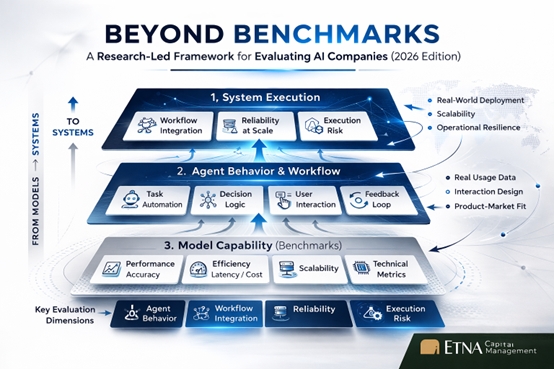Opinions expressed by Entrepreneur contributors are their own.
You’re reading Entrepreneur Middle East, an international franchise of Entrepreneur Media.
The widespread proliferation of artificial intelligence (AI) has elicited a confused mixture of anxiety and ambition. But sandwiched between the two is the actuality, which is the revolutionary applications of AI and its bankability for entrepreneurs.
The unfounded wariness towards machine-generated output and the overly ambitious claims about it have equally obscured that actuality. As such, there is a pressing need to shed light on it and induce much-needed clarity.
The crux of the matter is that AI is here, and it is here to stay. However, it didn’t happen with the advent of ChatGPT. Digital-first companies such as Spotify have embraced and incorporated it from the get-go, commissioning algorithms to analyze consumer behavioural data and tailor recommendations to individual preferences. Such AI-generated results were consumed unconsciously by the majority. As such, recent breakthroughs such as ChatGPT have only opened avenues for conscious consumption.
So, what is the difference now then? Well, that would have to be termed as colossal, because when such technologies are accessible to end users and startups, the scope for value creation grows several folds. In fact, the proof is in the pudding: ChatGPT’s user base grew to 100 million in just two months after the launch- the highest-ever growth rate for any platform. Evidently, despite lingering hesitancies toward adoption, AI has everyone’s attention. For SMEs and entrepreneurs, now is an opportune moment to explore in-house use cases, complete trial-and-error applications, and be AI-ready, before it becomes a business differentiator.
The need for AI readiness transcends sector and industry lines, making a case for adoption in creative domains such as content marketing. Though seemingly counterintuitive or a cardinal sin even, machine-generated content is gradually making inroads into marketing because of its demonstrable value. As it turns out, AI is not stifling creativity, but enhancing it, by eliminating common errors and things that do not bring value. So, content marketers, particularly ones operating in startups and SMEs, have business-centric reasons to separate anxiety from the actuality of AI adoption.
Related: The Advancement Of Artificial Intelligence Is Inevitable. Here’s How We Should Get Ready For It.
Content creation can be time-consuming and repetitive. Even after persistent efforts, content marketing can elude engagement and positive business results. Such conditions are ripe for the adoption of AI tools, which can automate tedious functions like keyword research, search engine optimization (SEO), and audience segmentation. Entrepreneurs hoping to maximize the efficiency of content marketing can leverage such tools, executing campaigns at scale, bridging quality gaps, and automating error-prone repetitive tasks. It is an unmistakable human-in-the-loop scenario aimed at fine-tuning the algorithms to organizational requirements with each passing campaign. At the same time, it does not need too many humans- the lean workforce befitting a startup.
In application, AI tools process vast amounts of behavioural customer data at a speed and scale that supersede human abilities. Content marketers can receive ready, actionable insights pertaining to keywords, messaging, and other resources- all contextualized to specific audience segments, and with nothing slipping through the cracks. That, in turn, can be used to formulate failproof marketing campaigns characterized by agility, personalized recommendations, and meaningful and measurable engagement. Together, such characteristics represent a step change in delivering content-driven experiences.
As the chill of a “funding winter” grips entrepreneurs, resource optimization has emerged as a priority. To that end, automating laborious tasks and shifting the focus toward critical areas such as value creation is a no-brainer. Unsurprising, therefore, that about 77% of companies are exploring AI to some extent, with 35% actively harnessing it, whereas the remaining 42% are checking viability. By automating, say, proofreading and SEO, startups can avoid hiring many content and copywriters while saving time and money without undermining output. Needless to say, AI can become a veritable member of a startup.
The findings of early movers attest to AI’s impact on bottom lines: a McKinsey survey revealed that about 79% of marketers posted at least 5% year-on-year revenue growth due to AI adoption. Meanwhile, PwC estimates a US$320 billion potential impact of AI for the Middle East, with the UAE capable of adding 14% to its gross domestic product in 2030 as a result of it. Such prospects boil down to the UAE’s exemplary AI readiness, which budding entrepreneurs, too, can build by being receptive to advancements such as ChatGPT. Indeed, this openness will initially pave the way for standalone AI applications in grammar-checking or text-to-image synthesis, before unlocking interdisciplinary possibilities. All the while, you are course-correcting a deep-learning model that can eventually give a run for your money- except, in reality, you are not giving, but only gaining.
Related: In An Era Of Artificial Intelligence, There’s Always Room For Human Intelligence








